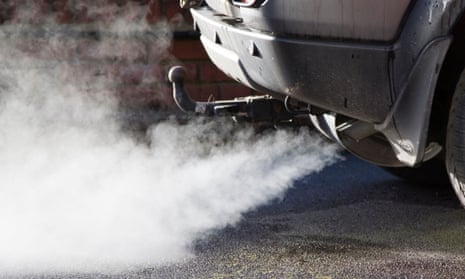Since the financial crisis of 2008, we have had multiple scandals about banks and bankers behaving badly – from the misselling of payment protection insurance and interest-rate hedges, to the rigging of Libor and foreign exchange rates, and corporate collusion in money laundering. The banking industry has been singled out for its unhealthy internal culture. But the car emissions scandal shows that sociopathic corporate behaviour is widespread, and its effects are even worse elsewhere.
The banking scandals were about many different things, because financial services are diverse. But in cars, if we leave aside Mitsubishi’s rigging of fuel efficiency tests, the big issue is the gaming of the metrics of diesel emissions by European manufacturers.
At least three major European firms have fitted diesel vehicles with devices that switch off key parts of the emissions control systems when cars are being driven on the open road, and switch them on when they are under test in the emissions laboratory or MOT test bay.
Diesel cars have a negligible market share in Japan and the US because national regulations have set strict limits on nitrogen dioxide and particulate emissions. But European regulations focused on carbon dioxide emissions, which could be easily reduced after the late 1990s by using electronic direct injection. Diesel cars, which had less than 15% of the EU new car market in 1990, had more than 50% by 2010 because EU regulators had allowed the European industry to market pretend-clean diesel cars with the lure of low CO2 and high mpg.
It looked like the classic “one bad apple” when VW was caught cheating the US regulations: a company with governance problems arrogantly decided to push diesels in the US after going its own way on technology designed to reduced emissions of nitrogen oxides. But increasingly it looks like there was an industry-wide culture of gaming the EU regulations. Mercedes, Opel-Vauxhall and VW have enabled low-temperature sensors that can legitimately switch off emission controls in wintry conditions to operate in temperatures as high as 17C; Fiat is under investigation in Germany for allegedly fitting a timer that cuts back emissions controls just after the 20-minute run time of the official EU test.
Gaming must be pervasive when official British tests show on-the-road emissions for 37 current and recent models are on average five times laboratory levels. And this gaming of the metrics is worse than banking in four specific ways.
First, the consequences are more dire. Some small businesses paid a high price for misselling, but most British consumers lost little financially that they could not claim back. The emissions scandal has caused a public health crisis about air quality in all our larger cities and right across Europe. London is expected to be in breach of NO2 safe limits for the next decade – and the official British estimate is that NO2 pollution currently causes 23,500 premature deaths every year.
Secondly, the management excuses are weaker. With Libor, it was regrettably true that senior managers in investment banks often did not know what their traders were doing. With VW, we are still unclear about who knew what and when; but the other European car companies are committee-run corporates. Their senior managers should have known what their engineers were doing – and must have suspected what other companies’ engineers had been doing because they all benchmark against competing models.
Thirdly, the undisclosed scandals are probably larger. In finance, many of the scandals are out in the public domain. But emissions gaming only came to light because new portable testing equipment allowed NGOs to test on-road emissions. If there is an industry-wide culture of gaming emissions, it is reasonable to assume that companies are also gaming crash safety.
Finally, there is no sensible discussion about how to re-regulate cars. Nobody had the courage to break up the banks, but the British have at least ring-fenced retail from investment banking and raised capital requirements. On car regulation, however, the EU has been captured by industry lobbyists backed by national governments; after official tests showed egregious on-the-road pollution, the British transport minister, Patrick McLoughlin, could do no more than say the “industry needs to raise its game”.
The car industry will try to distract us from all this by proposing scrappage schemes for the oldest diesel cars and pushing stories about driverless cars. Concerned citizens should instead ask the companies to make amends for the damage they have done in a very practical way, by prioritising the development of low-emissions city vehicles to replace the buses, taxis and delivery vans that are choking us to death. What about an electric light van suitable for city delivery of internet orders?
